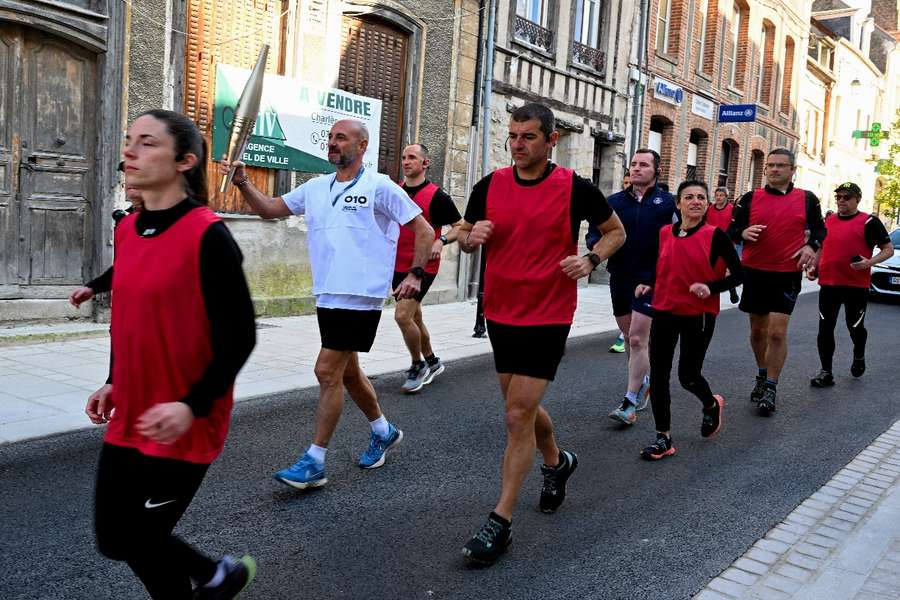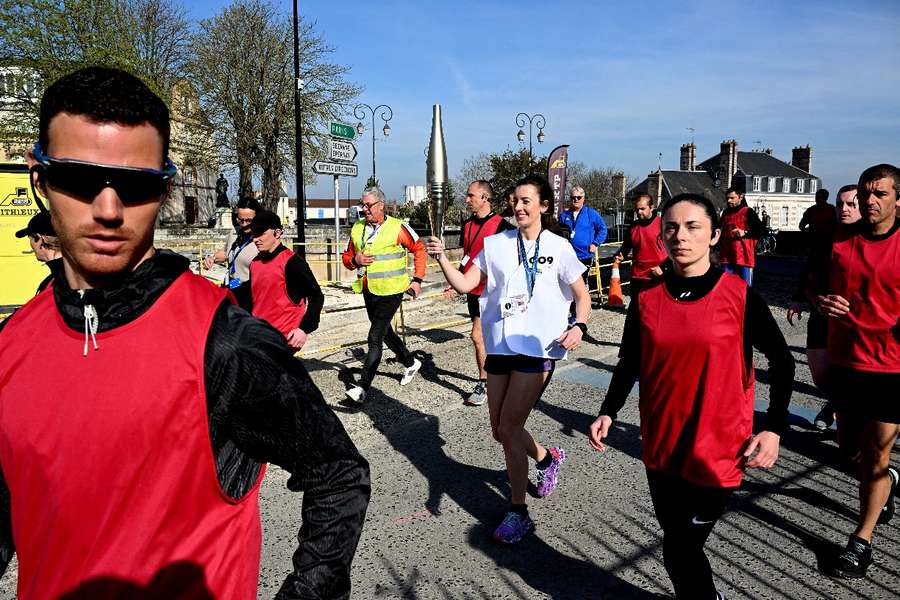France mounts security drill ahead of Olympic torch relay

Authorities are nervous about the potential for disruption of the relay, which will begin once the flame arrives in southern Marseille on May 8 ahead of the start of the Games on July 26.
Environmental groups such as Extinction Rebellion, anarchist networks or pro-Palestinian demonstrators are seen as potential risks, while the security forces remain on high alert for terror attacks.
"For the party to be beautiful, it needs to be safe," said chief Games organiser Tony Estanguet on Friday during the drill in the Aube area southeast of Paris that saw officers in plain-clothes jog alongside the torch bearer.
Anti-terror and riot police in vehicles as well as anti-drone specialists will be permanently but discreetly deployed as the torch moves around.
The Olympic flame is set to travel through 400 towns and dozens of tourist attractions during its 12,000-kilometre (7,500-mile) journey through mainland France and overseas French territories in the Caribbean, Indian Ocean and Pacific.
Interior Minister Gerald Darmanin is desperate to avoid a repetition of the chaotic scenes in 2008 during the torch relay ahead of the Beijing Olympics which travelled through multiple countries.

French authorities had to repeatedly extinguish the flame and ended up cutting the relay through Paris because of protests by pro-Tibet activists and critics of China's human rights record.
Speaking in January, Darmanin likened this year's relay to the annual Tour de France bicycle race but "with more originality and difficulties".
The flame will be lit in Olympia in Greece, then brought by boat to Marseille in a three-masted 19th-century French tall ship called the Belum.
Some media reports have suggested it will finish atop the Eiffel Tower, but organisers are keeping its resting place for the duration of the Games and the identity of the final torch bearer a closely held secret.
The opening ceremony is another major risk for French authorities, with athletes set to sail down the Seine in an armada of boats - the first time the Games have opened outside of the athletics stadium.
More than half a million people are set to watch in person, including 326,000 with tickets and an estimated 200,000 who will be able to observe the parade from buildings overlooking the waterway.

